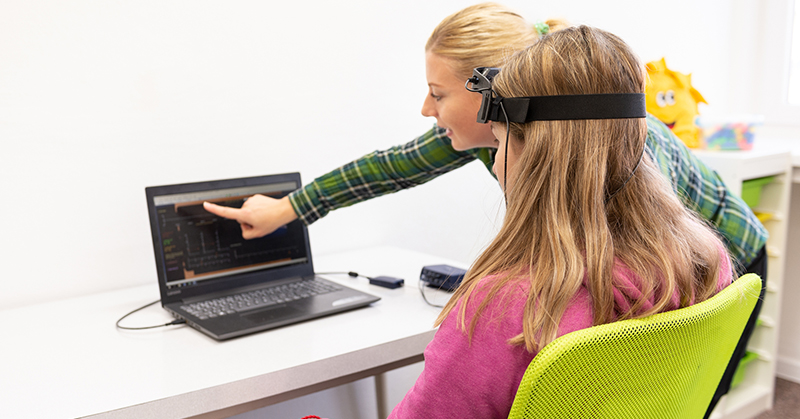Soon it may be possible to go to bed one night and wake up the following morning knowing your future risk of dementia. While it may sound like pie in the sky, scientists are working on ways to make it happen. And they’re pointing to the success they’re having with a very special headband.
A test called an electroencephalogram (EEG) can pick up abnormalities in brain waves and electrical activity. That’s why neurologists so often use it to detect brain disorders such as epilepsy or narcolepsy. But even in the early stages of dementia, well before symptoms appear, there are deficits and changes in cellular communication that can be detected on an EEG test.
We previously reported on how researchers at Massachusetts General Hospital (MGH) and Beth Israel Deaconess Medical Center developed and validated the Brain Age Index (BAI) created from sleep data that correlated with the level of cognitive decline.
The team behind the BAI recently published another study that focused on sleep spindles.
Spindles Linked to Fluid Intelligence
Sleep spindles are bursts of brain activity that occur during sleep. Spindles are closely linked to cognition, especially to learning and memory. For example, the team found spindles are most strongly linked to fluid intelligence, which relies on abstract thinking and problem-solving skills and declines during the early stages of dementia.
Co–senior author Brandon Westover at MGH explained, saying, “Now that we better understand how to measure sleep spindles, we can add these into a growing arsenal of brain health indicators that can be measured during sleep. These indicators will be essential tools in our quest to develop treatments that can preserve and enhance brain heath.”
Other scientists have also been working on a brainwave monitoring headband to detect dementia early in the disease.
Brainwaves Change Along With Abnormal Proteins
A research group led by the University of Colorado assessed the effectiveness of a lightweight headband worn during sleep.
For their study, published in the journal Alzheimer’s & Dementia in August, they analyzed data on 205 adults in their 70s who were either cognitively healthy or had very mild cognitive impairment.
For three nights they wore headbands fitted with electrodes to detect brainwave patterns related to memory reactivation in sleep. They also took samples of cerebrospinal fluid to look for unusual proteins that are markers of pre-symptomatic Alzheimer’s disease.
The results showed that specific electrical signals are linked to the presence of the protein markers in spinal fluid. Additional findings showed early stages of mild cognitive impairment can also be detected in the EEG signals.
Brice McConnell, MD, PhD, who led the study, said: “This digital biomarker essentially enables any simple EEG headband device to be used as a fitness tracker for brain health.
“Demonstrating how we can assess digital biomarkers for early indications of disease using accessible and scalable headband devices in a home setting is a huge advancement in catching and mitigating Alzheimer’s disease at the earliest stages.
“We are just scratching the surface with this work, paving the way for affordable and easy-to-use devices to monitor brain health.”
Dr. McConnell admits that much more work is needed to refine and perfect the technique, so it may take several more years before a headband becomes available for you to try at home.
Best Regards,
The Awakening From Alzheimer’s Team
https://www.massgeneral.org/news/press-release/sleep-brain-wave-patterns-to-diagnose-dementia







